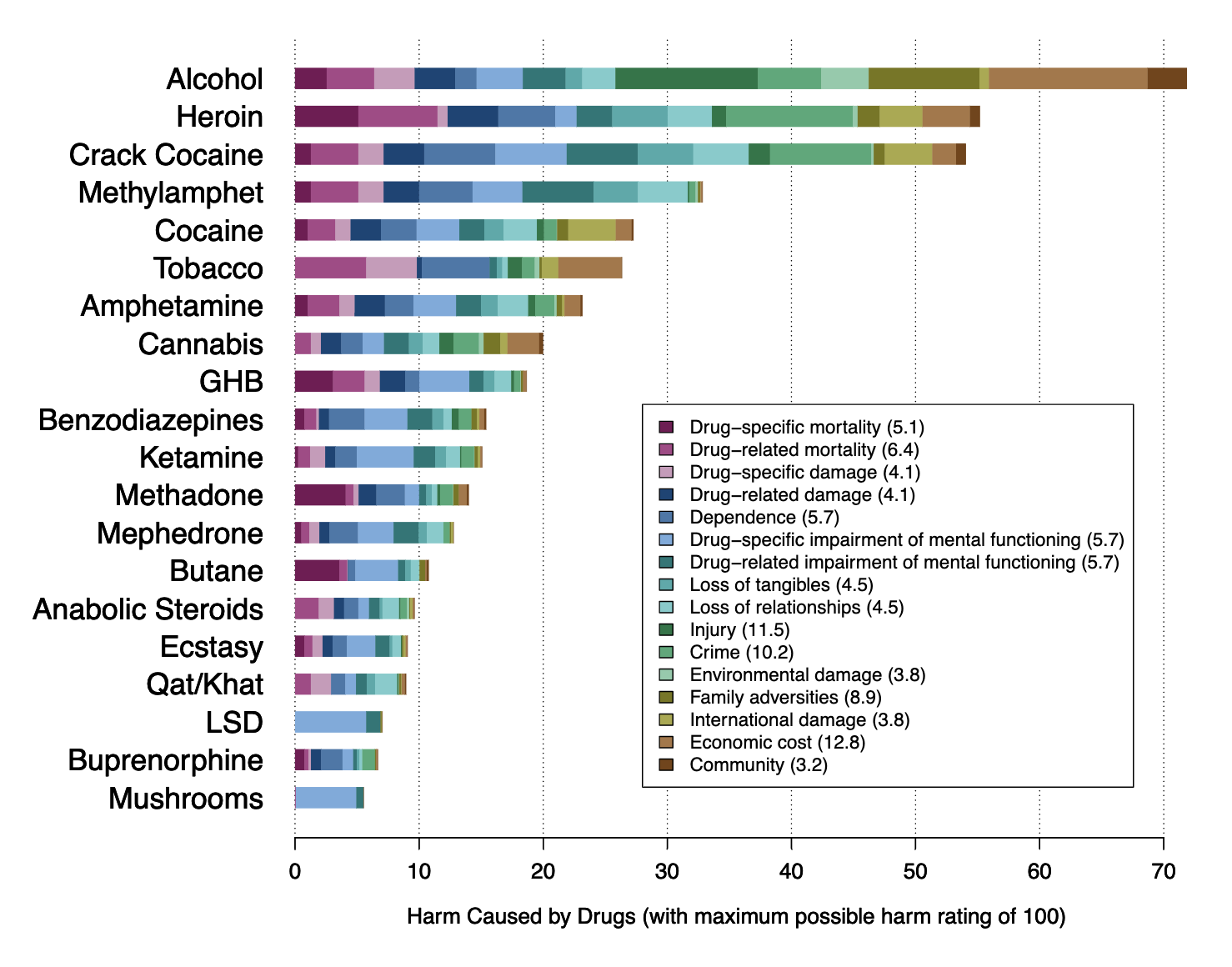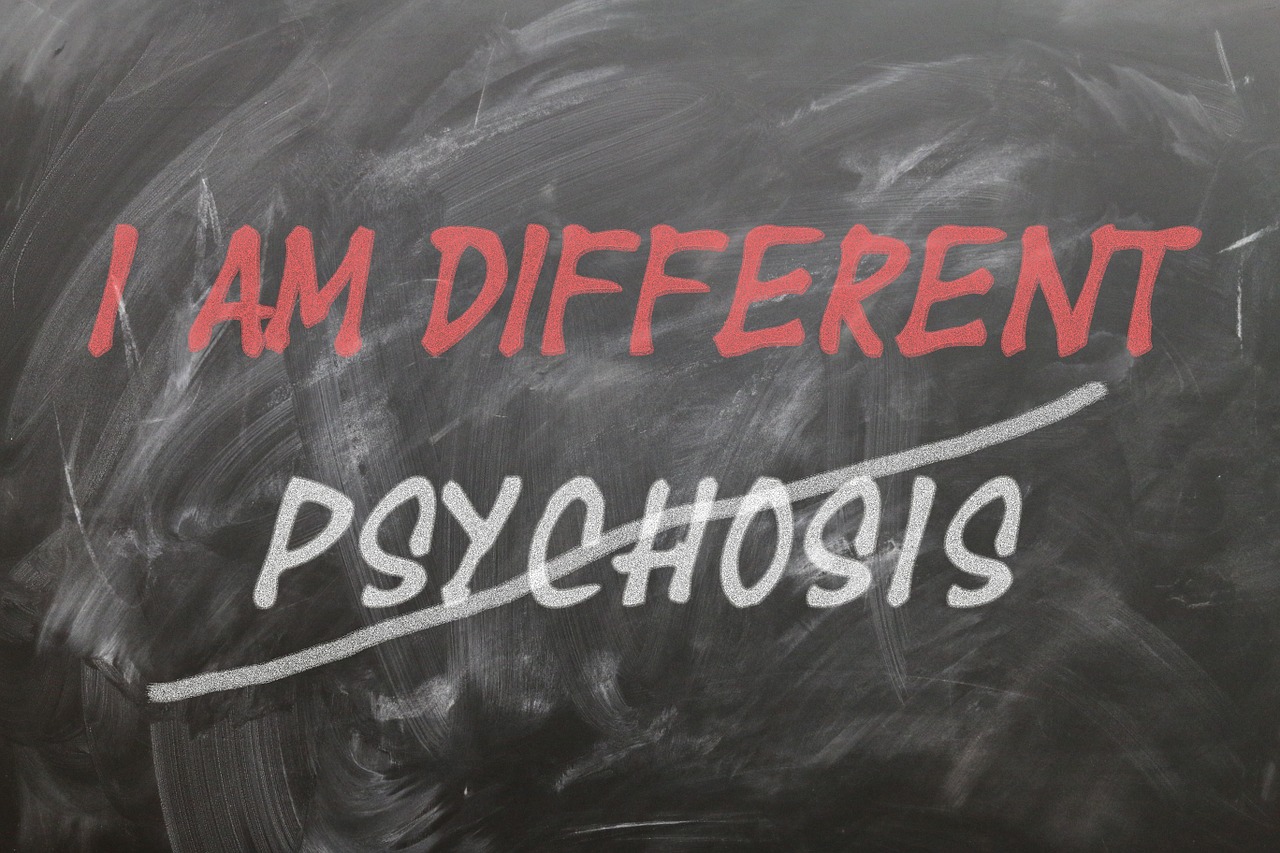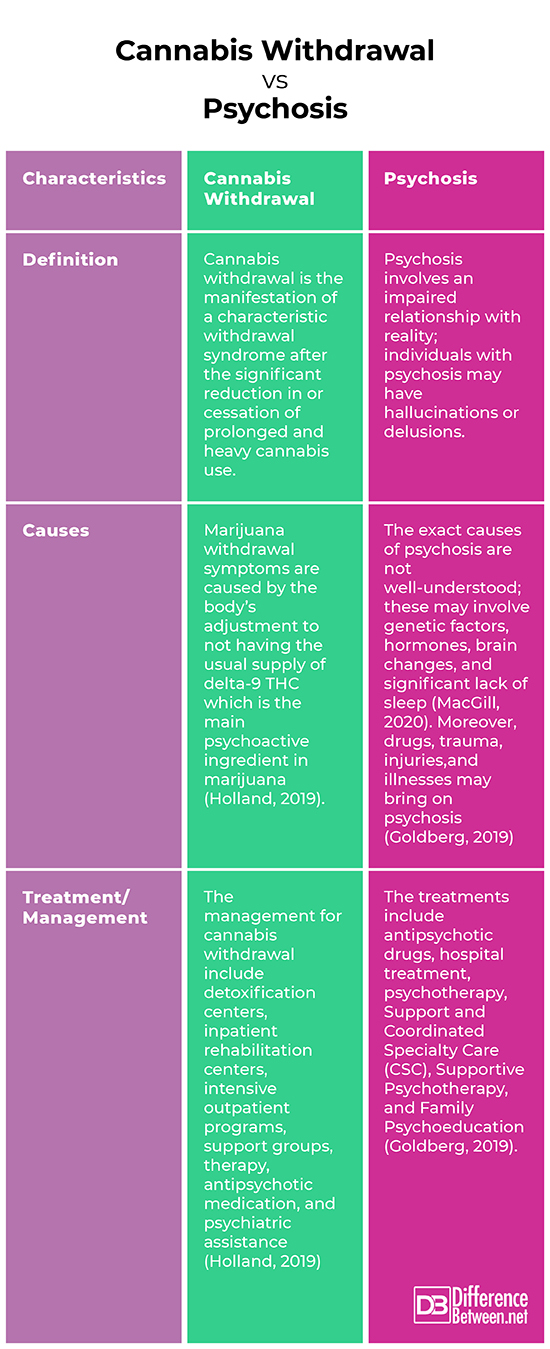Difference Between Cannabis Withdrawal and Psychosis
Both cannabis withdrawal and psychosis may involve loss of contact with reality, professional help, and therapy. For instance, a case study of a 23-year-old female presents that the patient experienced a brief psychotic break upon Cannabis withdrawal. She was using marijuana for about four years and experienced limiting psychotic episode for less than two days (Joseph, et al., 2018). Furthermore, another study found out that a patient developed more pronounced delusions and psychotic behaviors after Cannabis use (Khan & Akella, 2009).
Regarding their differences, Cannabis withdrawal is the manifestation of a characteristic withdrawal syndrome (i.e., irritability, anxiety, insomnia, abdominal pain, fever, etc.) which may involve psychosis after the significant reduction in or cessation of prolonged and heavy cannabis use. On the other hand, psychosis refers to an impaired relationship with reality which may involve hallucinations and delusions.

What is Cannabis Withdrawal?
The essential diagnostic feature of Cannabis withdrawal is the manifestation of a characteristic withdrawal syndrome after the significant reduction in or cessation of prolonged and heavy cannabis use.
The diagnostic criteria are (DSM-5, 2013):
- Cessation of heavy or prolonged (i.e., daily or almost daily for at least a few months) cannabis use
- Manifestation of at least three of the following withdrawal signs and symptoms within approximately seven days after cessation of cannabis use (the usual onset is within the first 24 to 72 hours of cessation):
- Irritability or aggression
- Anxiety or nervousness
- Difficulties in sleeping such as insomnia and disturbing dreams (may last for more than 30 days)
- Abdominal pain, fever, chills, headache, sweating, or tremors (at least one of these symptoms causing significant discomfort)
- The above mentioned signs and symptoms cause significant distress or impairment in important areas of functioning.
- The symptoms are not due to another medical condition or another mental disorder.
Causes
Marijuana withdrawal symptoms are caused by the body’s adjustment to not having the usual supply of delta-9 tetrahydrocannabinol (THC) which is the main psychoactive ingredient in marijuana. Individuals who regularly use cannabis develop a tolerance for THC. When they stop using, their bodies have to get accustomed to the new normal; hence, they experience physical and psychological symptoms (Holland, 2019).
Management
Professional help is often needed in managing the withdrawal symptoms; detoxification centers provide short-term programs which assist in medical attention and getting through the initial withdrawal phase. Moreover, inpatient rehabilitation centers are medical facilities which give assistance for more than 25 days. They help individuals stop using drugs and manage underlying issues. Intensive outpatient programs usually require weekly multiple sessions with mental health professionals. Support groups and therapy are also helpful in coping with underlying issues, finding accountability, and having socio-emotional support (Holland, 2019). In case of psychotic symptoms, antipsychotic medications like risperidone or olanzapine are prescribed for up to two weeks; however, psychiatric assistance should be sought if symptoms persist.

What is Psychosis?
Psychosis involves an impaired relationship with reality; individuals with psychosis may have hallucinations (sensing things that seem real but are not) or delusions (fixed and false beliefs that conflict with reality).It is a symptom of mental disorders such as schizophrenia and bipolar disorder (Carey, 2018).
Symptoms
The early signs of psychosis may include difficulties in focusing, sleeping, thinking, taking initiative, tolerating stress, and self-care. Moreover, those with this condition may isolate themselves, and feel depressed, anxious, or suspicious. The usual signs and symptoms include hallucinations, delusions, disorganized thinking, speech, and behavior (i.e., jumping between unrelated topics, making illogical connections in speech and thought), catatonia (becoming unresponsive), and unusual psychomotor behavior such as making unintentional movements like fidgeting and tapping (MacGill, 2020).
Causes
The exact causes are not well-understood; these may involve genetic factors, hormones (i.e., some women experience postpartum psychosis and the early signs of psychosis usually manifest in adolescence), and brain changes (i.e, dopamine level). In addition, significant lack of sleep may trigger psychotic symptoms (MacGill, 2020). Moreover, drugs (i.e., marijuana, amphetamines, and LSD) including prescription medications, trauma (i.e., sexual assault, war, death of a loved one), and injuries and illnesses (i.e., dementia, traumatic brain injury, and strokes) may bring on psychosis (Goldberg, 2019).
Treatment
The treatment for psychosis include antipsychotic drugs, hospital treatment, and psychotherapy such as Cognitive Behavioral Therapy (CBT), Support and Coordinated Specialty Care (CSC), Supportive Psychotherapy, and Family Psychoeducation (Goldberg, 2019).
Difference between Cannabis Withdrawal and Psychosis
Definition
Cannabis withdrawal is the manifestation of a characteristic withdrawal syndrome (i.e., irritability, anxiety, insomnia, abdominal pain, headache, etc.) after the significant reduction in or cessation of prolonged and heavy cannabis use. On the other hand, psychosis involves an impaired relationship with reality; individuals with psychosis may have hallucinations (sensing things that seem real but are not) or delusions (fixed and false beliefs that conflict with reality).
Causes
Marijuana withdrawal symptoms are caused by the body’s adjustment to not having the usual supply of delta-9 THC which is the main psychoactive ingredient in marijuana (Holland, 2019). In comparison, the exact causes of psychosis are not well-understood; these may involve genetic factors, hormones, brain changes, and significant lack of sleep (MacGill, 2020). Moreover, drugs, trauma, injuries,and illnesses may bring on psychosis (Goldberg, 2019).
Treatment/Management
The management for cannabis withdrawal include detoxification centers, inpatient rehabilitation centers, intensive outpatient programs, support groups, therapy, antipsychotic medication, and psychiatric assistance (Holland, 2019). As for psychosis, the treatments include antipsychotic drugs, hospital treatment, psychotherapy, Support and Coordinated Specialty Care (CSC), Supportive Psychotherapy, and Family Psychoeducation (Goldberg, 2019).
Cannabis Withdrawal vs Psychosis

Summary
- Psychosis may be experienced during cannabis withdrawal.
- Cannabis withdrawal is the manifestation of a characteristic withdrawal syndrome after the significant reduction in or cessation of prolonged and heavy cannabis use.
- Psychosis involves an impaired relationship with reality; individuals with psychosis may have hallucinations or delusions.
- Difference Between Hematoma and Melanoma - February 9, 2023
- Difference Between Bruising and Necrosis - February 8, 2023
- Difference Between Brain Hematoma and Brain Hemorrhage - February 8, 2023
Search DifferenceBetween.net :
Leave a Response
References :
[0]Carey, E. Psychosis. Healthline. https://www.healthline.com/health/psychosis
[1]Goldberg, J. (2019). Psychosis and psychotic episodes. WebMD. https://www.webmd.com/schizophrenia/guide/what-is-psychosis#:~:text=Psychosis%20is%20a%20condition%20that,or%20trauma%20can%20cause%20it.
[2]Holland, K. (2019). What to expect from marijuana withdrawal. Healthline. https://www.healthline.com/health/marijuana-withdrawal
[3]Joseph, C., et al. (2018). A case of brief psychosis upon cannabis withdrawal. Addiction Medicine and Therapy. https://medcraveonline.com/MOJAMT/a-case-of-brief-psychosis-upon-cannabis-withdrawal.html#ref13
[4]MacGill, M. (2020). What is psychosis? Medical News Today. https://www.medicalnewstoday.com/articles/248159
[5]Image credit: https://cdn.pixabay.com/photo/2015/11/07/09/13/board-1030590_1280.jpg
[6]Image credit: https://upload.wikimedia.org/wikipedia/commons/0/08/HarmCausedByDrugsTableDetailed.svg
